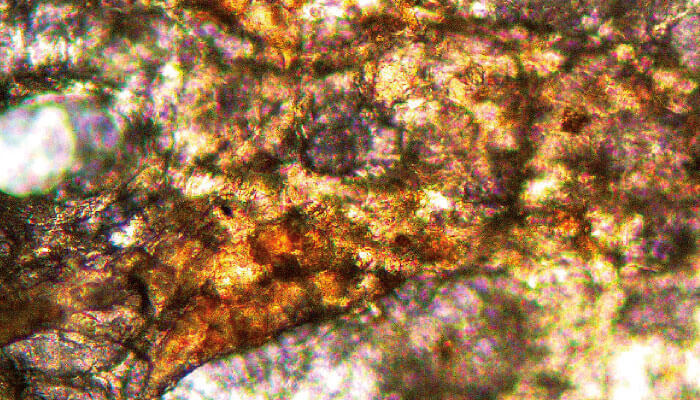The longevity of proteinacous matter in vertebrate hard tissue is estimated at around 3.8 million years. So why are soft tissue remnants still found in 100 million-year-old dinosaur bones? A team that included researchers from Yale University and the American Museum of Natural History analyzed 35 samples of decalcified fossil bones, eggshells and teeth using Raman microspectroscopy (1), discovering that in more oxidative environments, soft tissue had converted into advanced glycoxidation endproducts (AGEs) and advanced lipoxidation endproducts (ALEs). These N-heterocyclic polymers – structurally comparable to burnt toast – are resistant to decay.

References
- J Wiemann et al., “Fossilization transforms vertebrate hard tissue proteins into N-heterocyclic polymers”, Nat Commun, 9, 4741 (2018). DOI: 10.1038/s41467-018-07013-3




